How Your Microbiome Holds the Key
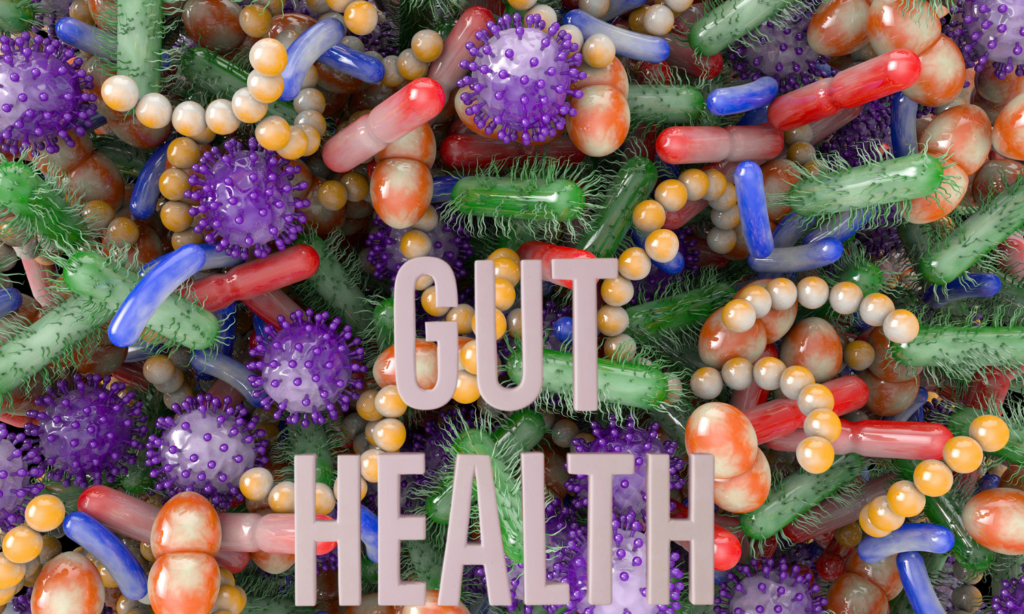
The human gut is often called the “second brain,” and for good reason. Nestled within your digestive tract lies a thriving universe of microorganisms the gut microbiome comprising trillions of bacteria, viruses, fungi, and archaea.

This complex ecosystem doesn’t just break down food; it wields immense power over your immune system, mental health, metabolism, and even your risk of chronic diseases.
YOUR HEALTH STARTS IN YOUR GUTS
Emerging research reveals that nurturing this microbial community isn’t just about avoiding stomachaches—it’s a cornerstone of preventing and delaying conditions like obesity, diabetes, heart disease, and autoimmune disorders.
Let’s dive into the science of gut health and how you can harness it to transform your well-being.
The Gut-Body Connection: More Than Just Digestion
Your gut microbiome acts as a dynamic interface between the food you eat and every system in your body. Here’s how it influences your health:
1. Immunity: Your First Line of Defense

Approximately 70% of your immune cells reside in the gut. Beneficial bacteria train these immune cells to distinguish between harmless substances (like food) and dangerous pathogens.
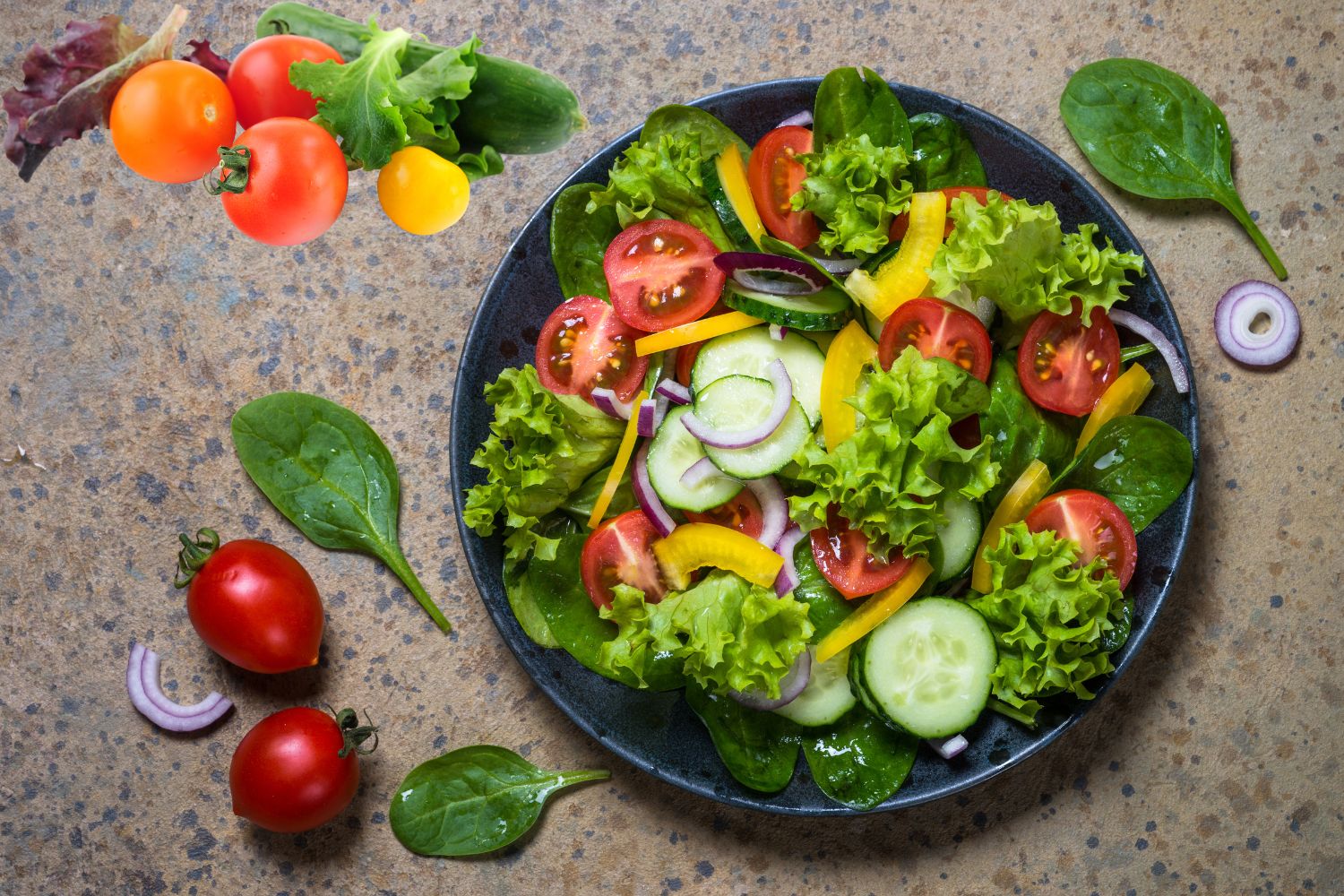
Dysbiosis—an imbalance in gut bacteria—can trigger chronic inflammation, leading to autoimmune diseases like Crohn’s, rheumatoid arthritis, and even allergies. A 2023 *Nature* study found that low microbial diversity correlates with heightened immune overactivity.

2. Mental Health: The Gut-Brain Axis
The gut produces 90% of the body’s serotonin, a neurotransmitter critical for mood regulation. Gut microbes also communicate with the brain via the vagus nerve, influencing anxiety, depression, and cognitive function.
Research in *Molecular Psychiatry* links dysbiosis to neurodegenerative diseases like Alzheimer’s, as harmful gut bacteria produce amyloid proteins that may damage brain cells.

3. Metabolism and Weight Regulation
Certain gut bacteria extract calories from food more efficiently, affecting weight gain. Obese individuals often have higher levels of Firmicutes bacteria, which promote fat storage.
A balanced microbiome improves insulin sensitivity, reducing diabetes risk. A 2022 *Cell* study showed transplanting gut bacteria from lean individuals to obese participants improved their metabolic markers.

4. Disease Prevention
How Modern Life Sabotages Gut Health
Dysbiosis is tied to a “leaky gut” (intestinal permeability), where toxins seep into the bloodstream, sparking systemic inflammation.
This process is implicated in a range of serious health conditions, including heart disease, liver disorders, and colorectal cancer, all of which can have long-term impacts on overall well-being.
Antibiotics Are Harmful & Beneficial
While lifesaving, antibiotics wipe out both harmful and beneficial bacteria.
These powerful medications are essential for fighting infections, but they don’t discriminate, destroying the good microbes along with the bad. This disruption to the gut microbiome can weaken your body’s natural defenses and affect digestion, immunity, and even mental health
The Antibiotic Dilemma
Overuse of antibiotics—including their routine use in livestock—has been linked to long-term dysbiosis, an imbalance in gut bacteria. This condition can lead to chronic inflammation, antibiotic-resistant infections, and increased susceptibility to illness. Supporting gut health with probiotics and reducing unnecessary antibiotic use can help restore and protect the delicate microbial balance.

Fruit Smoothies Are Best Probiotics
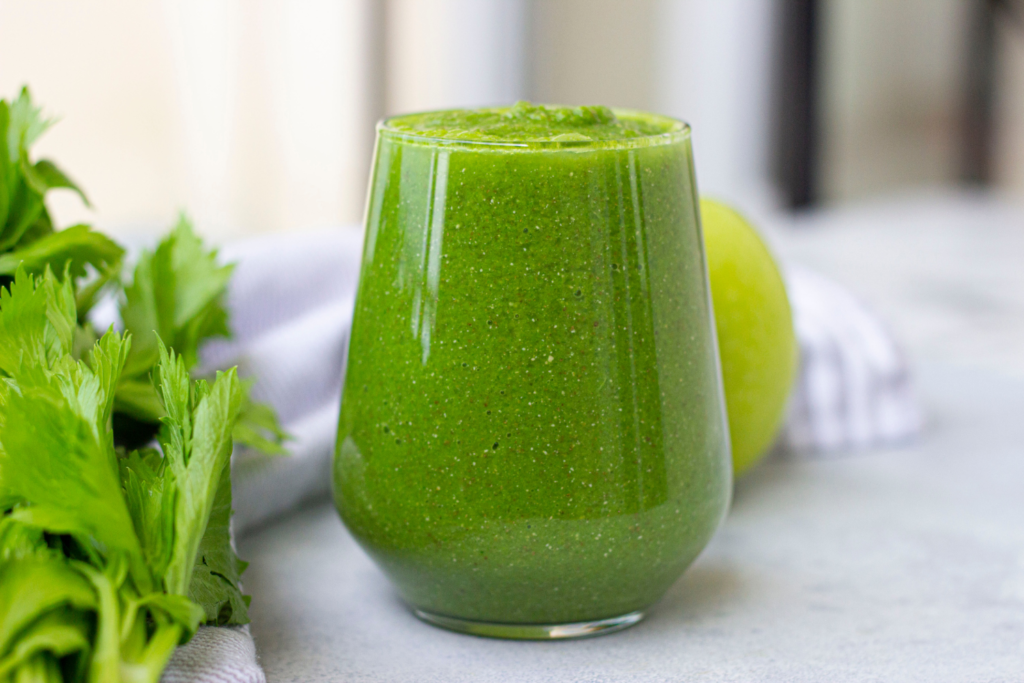
Go green! Smoothies Are Good

Switch Your diet Live Longer
(The Sugar Trap)
Refined sugars feed pathogenic bacteria like *Candida*, allowing them to outcompete beneficial species.
(Chronic Stress)
Cortisol disrupts gut barrier function and reduces microbial diversity.
(Low-Fiber Diets)
The average Western diet provides 15g of fiber daily—half the recommended 30g. Fiber-starved microbes can’t produce short-chain fatty acids (SCFAs), which protect against colon cancer and inflammation.
(Nourishing Your Microbiome)
A Science-Backed Strategy Rebuilding gut health requires a multi-pronged approach. Here’s how to cultivate a resilient microbial garden:

Your Health Starts On Your Table
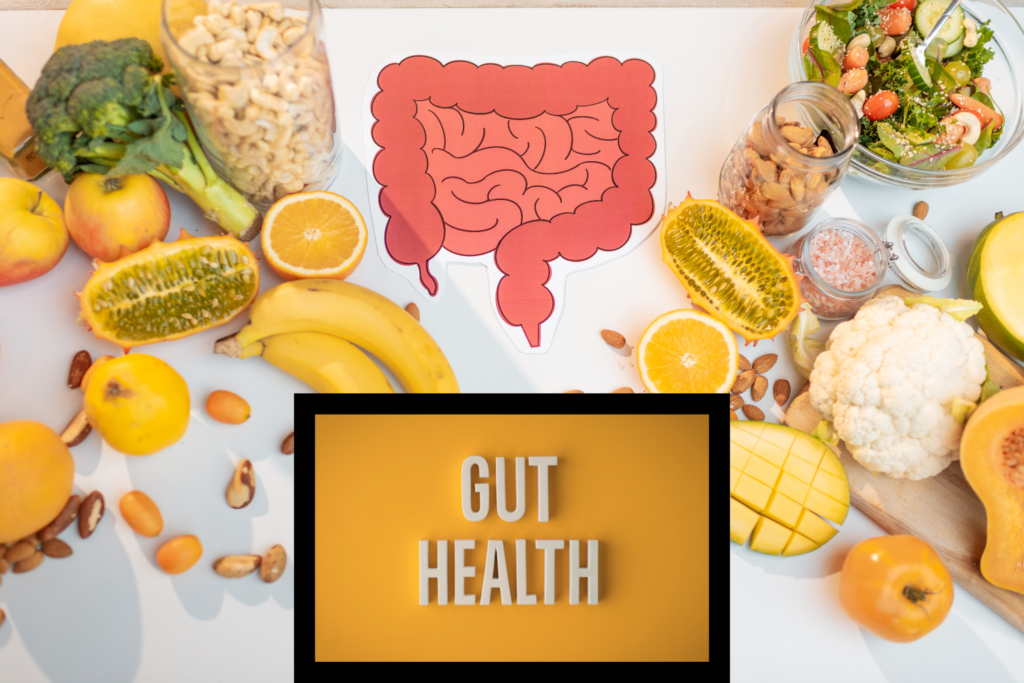
Your Guts Your Immune
1. Probiotics: Seed Your Gut with Beneficial Bacteria
Fermented Foods: Yogurt, kefir, kimchi, sauerkraut, and miso contain live cultures like “Lactobacillus and Bifidobacterium”. Aim for 1–2 servings daily.
Supplement Wisely
Choose multi-strain probiotics with at least 10–50 billion CFUs. Strains like *L. rhamnosus* (for immunity) and *B. longum* (for stress) offers targeted benefits.
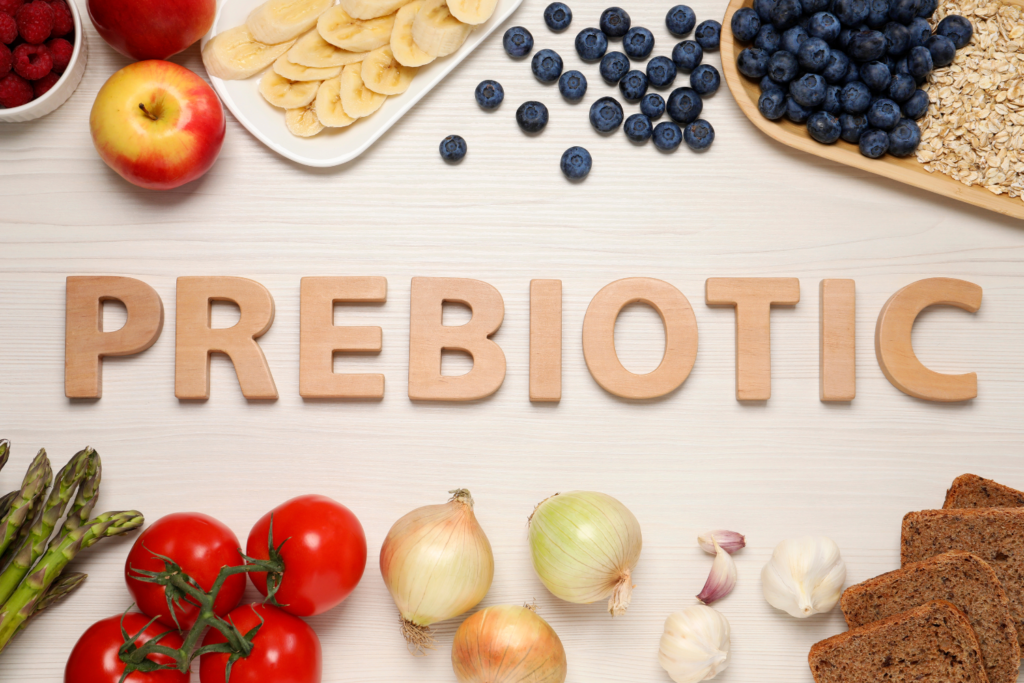
Prebiotics: Fertilize Your Microbial Garde
Prebiotic fibers feed good bacteria, helping them thrive. Top sources include Inulin, which is found in garlic, onions, leeks, and asparagus.
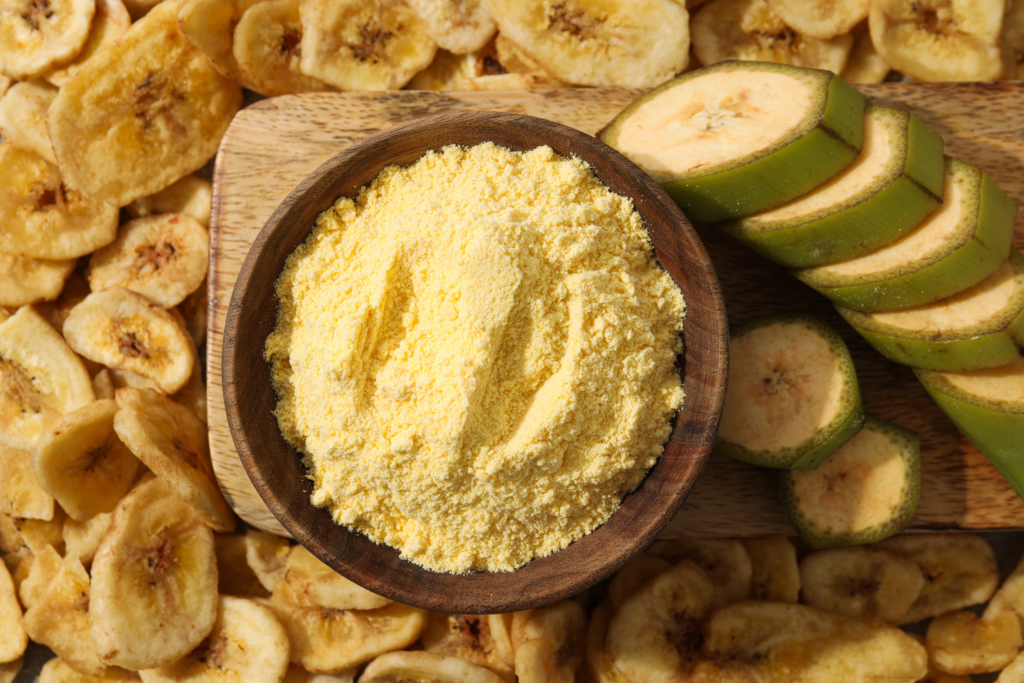
Resistant Starch Foods
Cooling cooked potatoes, rice, or pasta increases resistant starch content. Beta-glucans in Oats and barley boost SCFA production. Aim for 5–10g of prebiotics daily.
3. Diversify Your Plate
A 2021 Science study found people who eat 30+ plant types weekly have far more diverse microbiomes than those eating 10 or fewer. Rotate fruits, vegetables, legumes, nuts, and whole grains.
Polyphenol Power
These antioxidants in berries, dark chocolate, and green tea act as prebiotics and reduce inflammation.
4. Avoid Microbiome Disruptors
“Limit Antibiotics” Use only when necessary, and pair with probiotics during/after treatment.
(Ditch Artificial Sweeteners) Aspartame and sucralose alter gut bacteria in ways that promote glucose intolerance.
(Reduce Red Meat) High consumption increases TMAO, a gut metabolite linked to heart disease.
5. Lifestyle Synergy
Stress Management
Meditation and yoga lower cortisol, protecting gut integrity.
(Sleep) Poor sleep disrupts the circadian rhythms of gut microbes. Aim for 7–8 hours nightly.
(Exercise) Moderate activity increases microbial diversity, per a 2023 *Gut* journal review.
Gut Health Success Stories
(Case Study 1) A 45-year-old with ulcerative colitis achieved remission after 6 months of a high-fiber, anti-inflammatory diet and daily kombucha.
(Case Study 2) A 2020 trial in (Nutrients) found that obese participants who added prebiotics for 12 weeks lost 3x more weight than the control group.
FAQs: Your Gut Health Questions Answered
Q: How long does it take to improve gut health?
A: Minor changes can shift microbiota in days, but lasting repair takes 3–6 months of consistent effort.
Q: Can gut health affect skin conditions like acne?
A: Yes! Dysbiosis triggers inflammation linked to eczema, psoriasis, and acne. Probiotics may reduce breakouts.
Q: Are stool tests for gut health worth it?
A: Tests like Viome or Atlas Biomed reveal microbial diversity and imbalances, guiding personalized diets.
The Future of Gut Health
Scientists are exploring *psychobiotics* (probiotics that improve mental health) and fecal microbiota transplants (FMT) for diseases like [ C. diff and IBS ]. Personalized nutrition, based on your unique microbiome, is the next frontier.
Your Action Plan
1. (Start Small ) Add one fermented food and one new vegetable to your diet this week.
2. (Go Slow with Fiber ) Gradually increase intake to avoid bloating.
3. (Hydrate) Water aids fiber’s movement through the gut.
4. {Track Progress) Note changes in energy, digestion, and mood over 4–6 weeks.
By prioritizing your microbiome, you’re not just eating for today—you’re investing in a disease-resistant, vibrant future. Your gut is your ally; treat it wisely, and it will repay you in lifelong health.
Weight Loss Is Not A Myth
Eating Healthy Is Not A Mystery
Excuses Don't Make You Lose Weight
Menu

